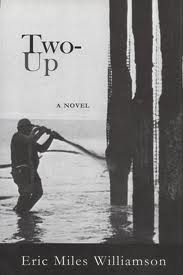Work is the all-American pastime, taking more and more of our waking hours, and infiltrating our sleep. It’s been grist for books from Studs Terkel’s Working to Joshua Ferris’ And Then We Came to the End to Joseph Heller’s Something Happened, set in an ad agency circa Mad Men, which begins with these evocative lines: “I get the willies when I see closed doors. Even at work, where I am doing so well now, the sight of a closed door is sometimes enough to make me dread that something horrible is happening behind it, something that is going to affect me adversely; if I am tired and dejected from a night of lies or booze or sex or just plain nerves or insomnia, I can almost smell the disaster mounting invisibly and flooding out toward me through the frosted glass panes.”
Recently we asked NBCC members, former awards winners and finalists, What’s your favorite book about work? The responses to this NBCC Reads series poured in (a few within minutes). Books ranged all over the map. A few books gathered multiple endorsements, including Philip Levine's What Work Is, Ed Park's Personal Days, Tom Rachman's The Imperfectionists, and this one, by NBCC board member Eric Miles Williamson:

Two-Up, the novel by Eric Miles Williamson, immediately comes to mind when I think about 'work' as the subject of literature. It stands out as the quintessential ode to the American working class in contemporary letters, and may very well represent the most comprehensive and idiosyncratic treatment of hard labor in all of literature. From the splendor of Williamson’s agonizingly beautiful prose to the depth of his working symbols, passages like the following demonstrate Two Up’s devotion and proximity to an authentic representation of the working class and its people
Broadstreet breathes deeply. In his mouth the sour dry taste of sweat and gunite,
aftertaste of diesel burning in his throat and nostrils, exhaust and ozone and the
copper taste of the laborer’s blood. He looks at his bare arms, gray and spotted
with dark blood and scarred from tie-wires, blades, groundwires, fresnoes, rods,
concrete-burns. But Broadstreet does not care. Broadstreet is flush.
In Two-Up, Williamson captures, faithfully, the cruel poetry of sweat, forever solidified in an unsettling world of gunite.
Eric Miles Williamson's novels East Bay Grease, Two-Up, and Welcome to Oakland. No novelist I know of writes about work–construction work, manual labor, scutwork (guniting, truck tire busting, driving a dump truck)–with such an extraordinary combination of stark realism and Rabelaisian comedy.

